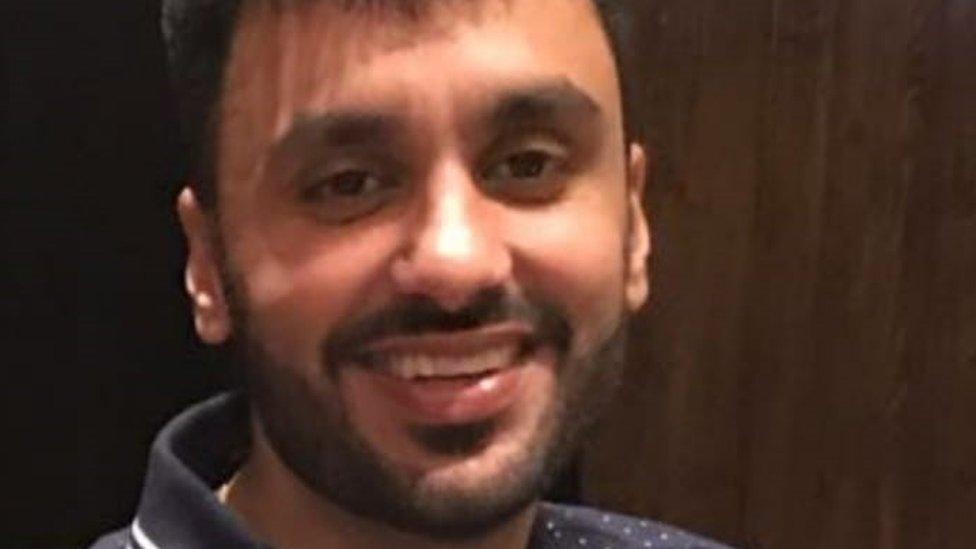Sikh activist torture 'not admitted' - UK government
- Published
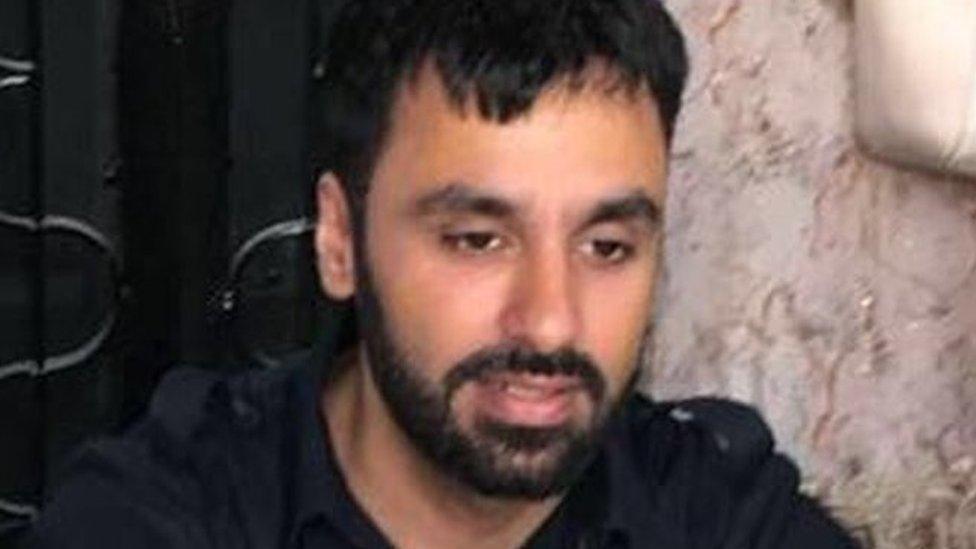
Jagtar Singh Johal, from Dumbarton, is being held under India's anti-terror law
The UK government has said it does not accept that a Scottish Sikh activist was tortured after being detained in India on terror charges.
Jagtar Singh Johal, from Dumbarton, has been held in India since November 2017.
He alleges the UK Intelligence Services "tipped off" their Indian counterparts despite the risk he could be tortured.
In papers lodged at the High Court of Justice in response to Mr Johal's legal claim, the UK government said the torture allegations were not admitted.
It said they would be required to be heard in full in front of a judge.
In Scotland, Mr Johal was an active blogger, highlighting historical human rights abuses and atrocities against Sikhs in the Punjab region.
He was arrested in the Indian city of Jalandhar soon after his wedding, more than five years ago.
The 36-year-old was shopping with his wife when his family say he was snatched from the street by plain-clothes officers of the Punjab Police and forced into an unmarked car.
He says he was beaten and tortured by officers over the following days, and given electric shocks to his genitals, before being made to sign a blank confession document.
These allegations have been denied by the Indian authorities.
Mr Johal has remained in detention in a series of Indian prisons ever since, accused of funding the purchase of weapons used to assassinate a number of right-wing Hindu religious and political leaders in the Punjab.
He denies the charges against him and says his arrest and trial is political.
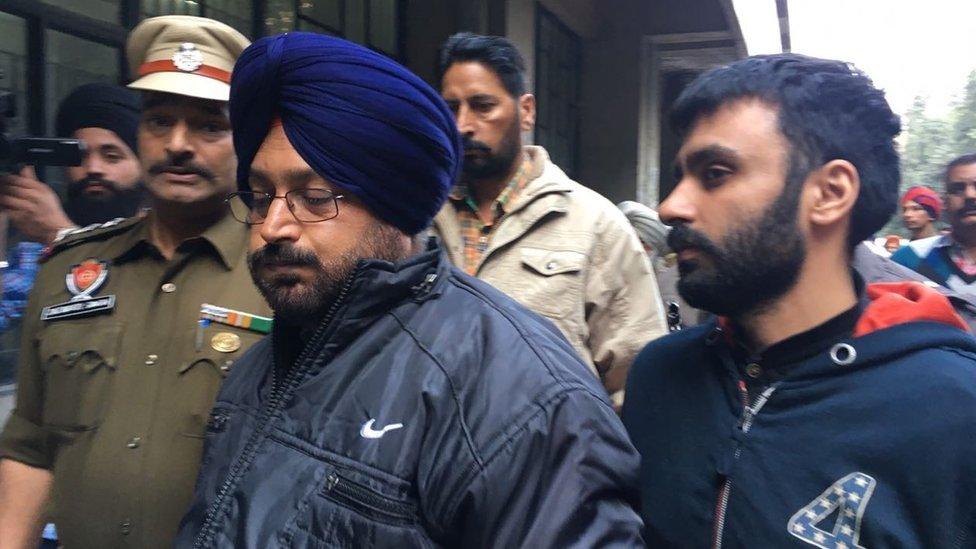
Jagtar Singh Johal (right) arrives at court in India in November 2017
Last year, the BBC revealed claims by investigators at the human rights organisation Reprieve that Mr Johal was arrested after information on him was passed by the UK Intelligence Services to their Indian counterparts.
He is now suing the Foreign Office and other branches of the government saying this information "caused or contributed" to his mistreatment as well as the "ongoing mental anguish" he has endured facing a potential death sentence and execution in India.
The UK government has a longstanding policy of neither confirming nor denying public statements about the role of its intelligence services, but it has now responded formally to Mr Johal's legal action and some of his allegations.
In court papers, its lawyers write: "For the avoidance of doubt, the allegations of torture and/or inhuman or degrading treatment by the Punjab Police… are not admitted."
And they say the UK government denies having "caused, contributed to [or] legal responsibility for any personal injuries, loss or damage suffered by" Mr Johal.
They make several references to Mr Johal having been visited by consular staff from the British High Commission in the days after his detention and appearing "fine", with "no visible injuries".
They also say "When asked about mistreatment [Mr Johal] said he wanted to discuss this at the next visit."
Mr Johal's family and legal representatives believe this defence is at odds with public and other statements made by UK government officials on his case, and that material has been "selectively quoted".
His brother Gurpreet Singh Johal said he was "extremely disappointed" by the UK government's response to his brother's legal claim.
He told the BBC: "For years, ministers and consular staff have been telling me they take Jagtar's torture claims seriously and that there should be an independent investigation.
"So for the lawyers to question that, now that it's come out that Britain's intelligence services might have played a role in his abduction, is very hurtful."
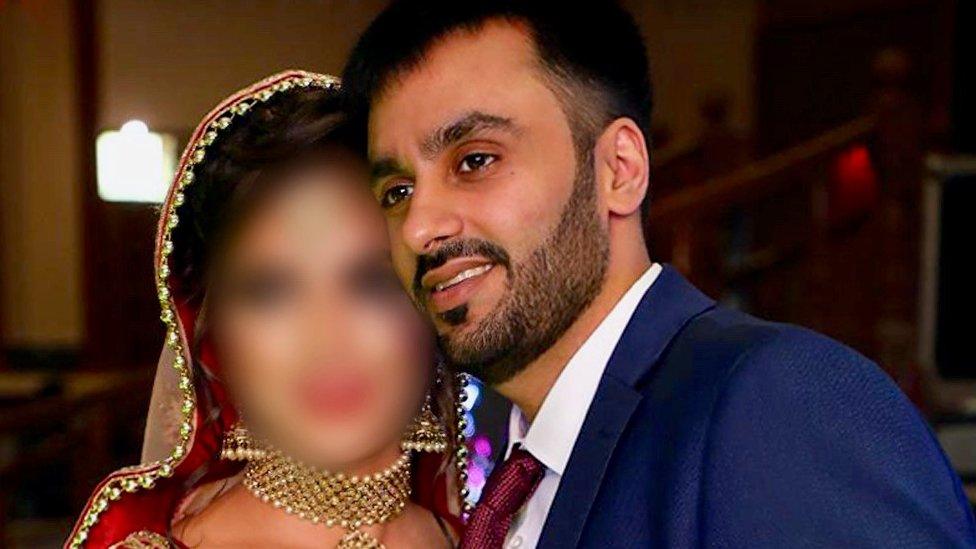
Mr Johal got married in India in 2017
In an email to Gurpreet in December 2017, a consular official wrote after a visit to Mr Johal: "I just want to reassure you that this does not mean we take at face value that he told us he was well.
"We are conscious that your brother is speaking in front of an Indian official and therefore is considering carefully what he says to us. We know that there is more to be said at the right opportunity."
The same official also wrote: "At the end of my visit the official left the room to get the guard in. At this point Mr Johal whispered to me 'we need to talk about mistreatment, but not now, at a later stage'."
The human rights organisation Reprieve represents Mr Johal.
Its director of policy and advocacy Dan Dolan said the UK government's defence was "alarming" and used "artful phrases".
He told the BBC: "Government lawyers claims that he was looking fine are really disingenuous.
"They don't take into account the full context and frankly they look like an attempt from the government to defend itself from a legal claim rather than doing what is right on behalf of this British national."
In a statement a Foreign Office spokesperson said: "Mr Johal's allegations against the UK government are the subject of ongoing court proceedings and, as such, it would not be appropriate to comment."
Related topics
- Published22 August 2022
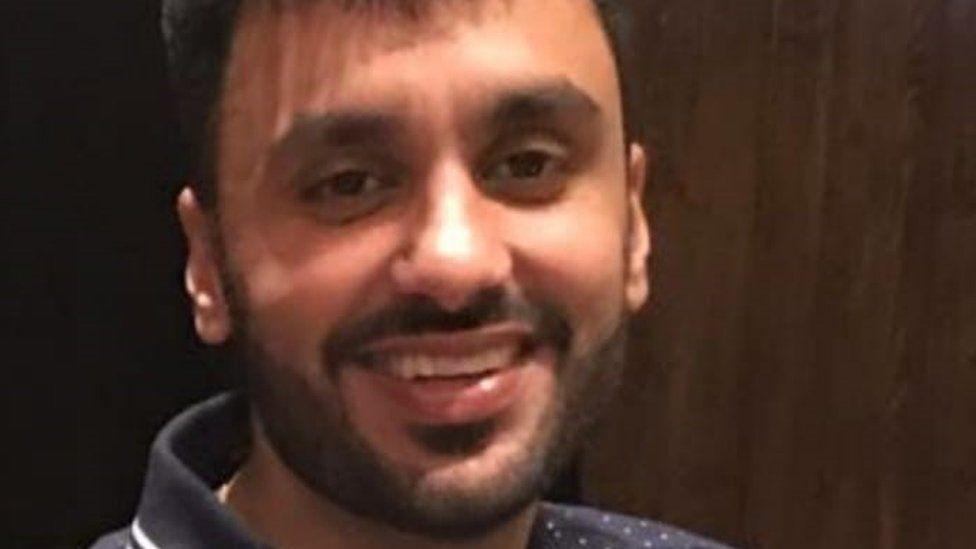
- Published26 July 2022
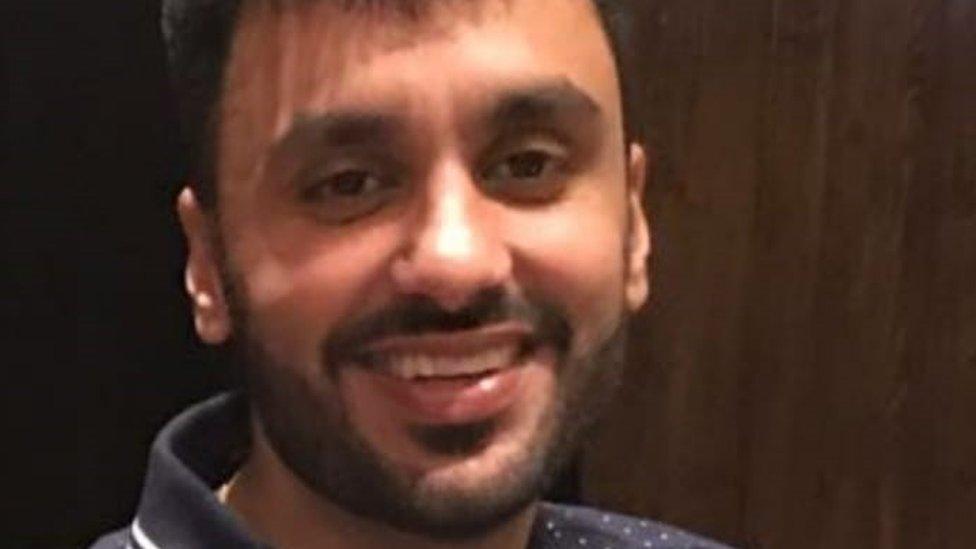
- Published28 January 2021
